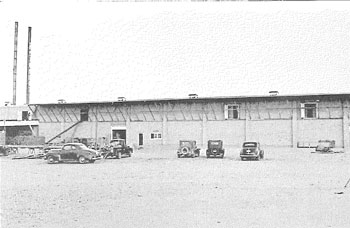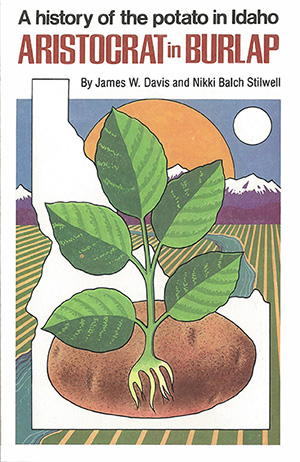 Most wartime employees rode the bus to work, few drove cars.
Most wartime employees rode the bus to work, few drove cars.
The average high school student in Brooklyn, New York, has a limited awareness of the state of Idaho and for good reason. Idaho is a remote, Western state with only about one-fourth the population of that one New York borough. Idaho is known for potatoes and Sun Valley. It is unusual to find anyone in the Eastern United States with more-specific knowledge unless they have visited Idaho.
Little does the city dweller realize the extent to which developments in the Idaho® potato industry have affected his eating habits. He would never dream that his per-capita consumption of potatoes has increased because of developmental work done in this remote and thinly populated western state.
It is not often that a shot fired in Idaho is heard "around the world," but the potato processing revolution is one that would well qualify.
The earliest form of potato processing, now lost in antiquity, was probably the drying of potatoes to preserve them for later use. In Idaho, the first processing activity was the extraction of starch from potatoes closely followed by the production of potato flour and potato meal.
These activities were primarily adapted for salvaging unusable potatoes or utilizing surplus supplies in low-priced years. Starch plants were never popular with growers because the portion of their crop that went into starch represented a less-than-break-even venture for them.
The Rogers Brothers Seed Company claims the first dehydration of potatoes for food use in Idaho. They indicate that they were producing potato flour in 1926 and drying diced potatoes in 1940.
Military needs during World War II forced the development of techniques that gave birth to the modern potato-processing industry in the Gem State as well as the rest of the world.
With supply lines that stretched halfway around the globe, the U.S. Army was vitally interested in reducing the weight and bulk of vegetables used to feed troops. Onion dehydration was already underway in California when the J. R. Simplot Company became interested. Basic Vegetable Corporation had been buying fresh onions in Idaho for drying at their Vacaville plant and Simplot Western Idaho Produce Company was selling supplies to the California processor.


 Most wartime employees rode the bus to work, few drove cars.
Most wartime employees rode the bus to work, few drove cars.